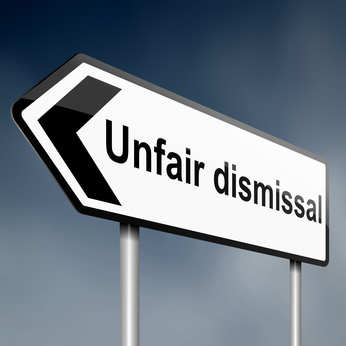When you’re making a claim for unfair dismissal, it’s useful to know what to expect. In this article, you will discover the usual process and timescales.

Acas
This stage does not apply if you are claiming against an employer in Northern Ireland.
If you are in GB, the first step is to tell ACAS, the Advisory, Conciliation and Arbitration Service, that you are planning to lodge a claim. If you skip this step, your claim will be rejected.
They will try to settle the dispute using their free ‘early conciliation’ service. If that doesn’t work, they’ll send you an Early Conciliation Certificate. You’ll need this when you go on to make a claim to the Tribunal.
ET1 form
The ET1 form starts your Employment Tribunal claim.
You’ll find an online version at www.gov.uk or at www.employmenttribunalsni.co.uk in NI. You can complete the form online or print a copy off and send by post.
On it, you’ll need to make a statement explaining exactly what happened. Write in numbered paragraphs, in chronological order. Be clear, and stick to the point. Include every key event, but don’t go into huge detail.
Your complaint should be covered by the law, but you don’t need to use legal language.
The ET1 form is an important document, and it’s the first thing the Employment Tribunal will read. As specialist employment lawyers, we can help you fill it in.
Are you claiming that your employer was discriminatory when they dismissed you? If yes, we’ll also help get the relevant information from your employer to prove your case.
Sending the ET1 form
The ET1 form must arrive at the Tribunal Office within the time limit, so if you are sending by post, make sure to send it early and allow time for postal delays.
The address to send it to is different for England and Wales, Scotland, and Northern Ireland.
If you’ve asked us to help, we’ll prepare and lodge the form for you.
Don’t delay
In most cases, you must bring your claim within three months less one day from the date you were dismissed. This is probably the last date you worked for your employer, whether you worked your notice period or not.
If you’re not sure, ask your employer to confirm the date your employment is being terminated. Alternatively, you can ask us, and we’ll help you to find out.
Note that this timescale applies even if you have started an appeal against your dismissal, and if you’ve gone through Acas early conciliation as explained above.
ET3 form
When the Tribunal receive your ET1 form, they will send you a Notice of Acknowledgement.
If you don’t get this soon after sending your ET1 form, check whether the Tribunal received it, and if not, send it again (that’s another reason why you need to allow plenty of time).
Again, we will do this for you if you want.
When they get your ET1, the Tribunal will send a copy to your employer. Your employer then fills in a response called the ET3. In it, they detail their defence.
You need to allow time for your employer to do this.
The Tribunal will send you a copy of the ET3 about six weeks after they received your ET1.
The Hearing
The hearing is when the Employment Tribunal will hear your case and your employer’s defence against it.
There may be a long wait, depending on where you live and how busy the Tribunal is.
If it’s a simple claim, the hearing will take one day or less. In this case, you can expect a hearing date about four to six months after you submit your ET1 although in some areas, it is currently taking more than a year to have hearings listed.
If it’s a more complex claim (such as discrimination), the hearing might take longer than one day, and you might have to wait longer for a date when your case can be heard.
Understand the jargon
When you make an unfair dismissal claim, there’s a lot of jargon to understand. For example:
• You will be the ‘claimant’
• Your employer will be the ‘respondent’
Let us help with your claim, and we will explain everything in simple language.
Need help?
For a FREE assessment of your claim, call 0808 168 7288 or fill in the contact form on the top right of this page.
We have already helped thousands of people to win millions of pounds in compensation.
You have a choice of ways to pay, including ‘no win, no fee’.
